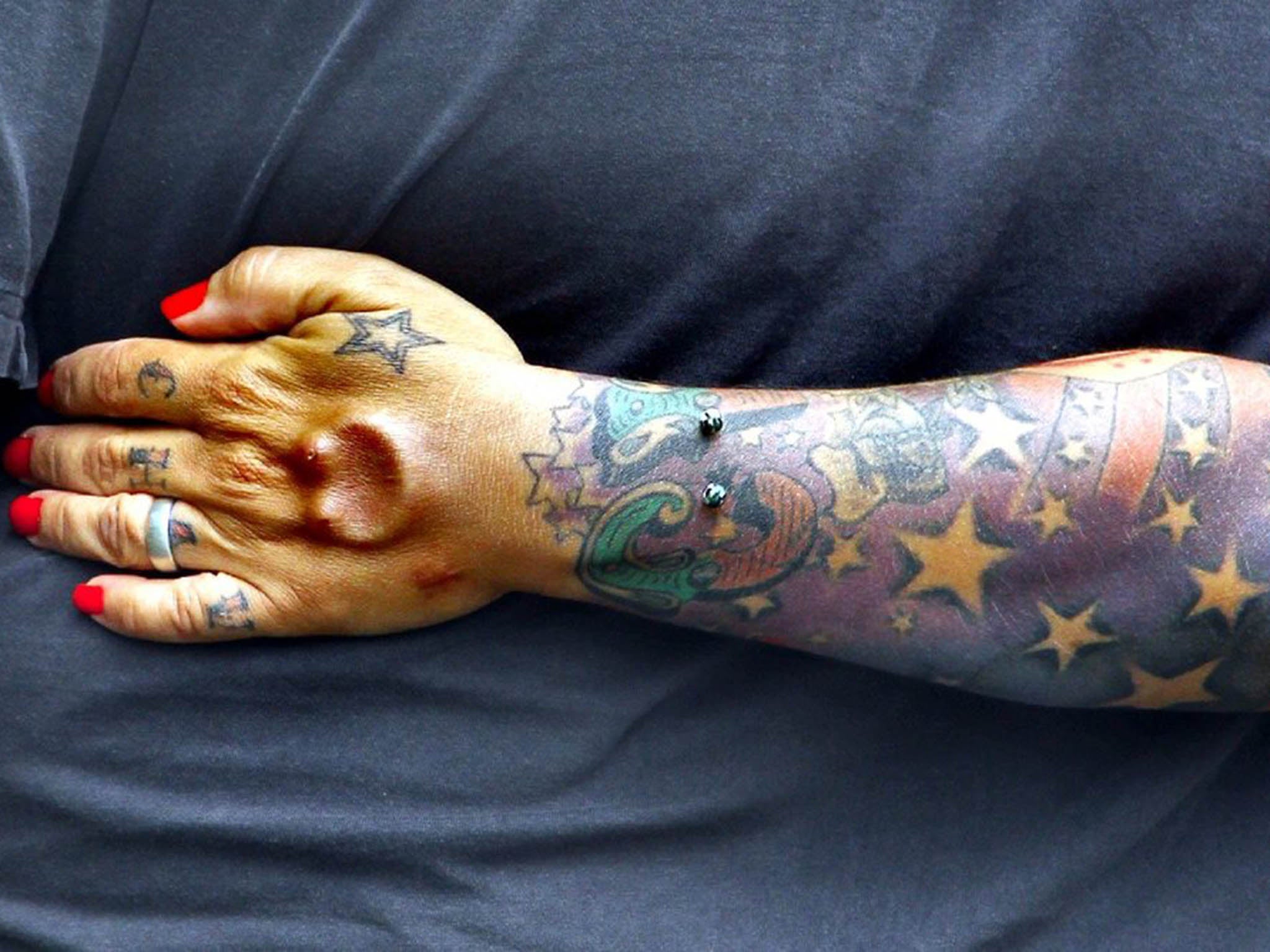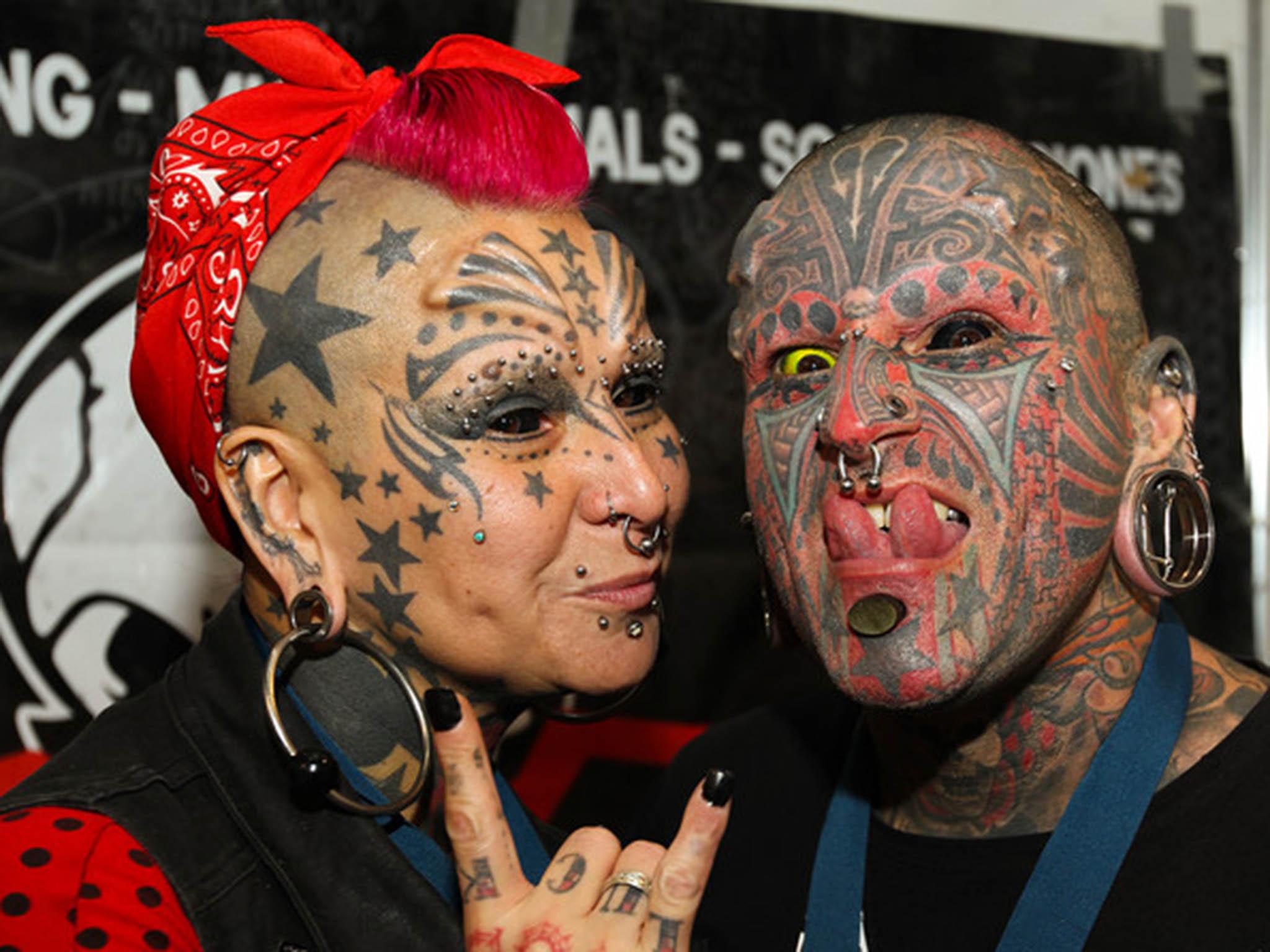Is extreme body modification even legal?
The law isn’t clear on whether someone can even consent to eyeball tattoos, skin implants, tongue splitting or ear pointing

Your support helps us to tell the story
From reproductive rights to climate change to Big Tech, The Independent is on the ground when the story is developing. Whether it's investigating the financials of Elon Musk's pro-Trump PAC or producing our latest documentary, 'The A Word', which shines a light on the American women fighting for reproductive rights, we know how important it is to parse out the facts from the messaging.
At such a critical moment in US history, we need reporters on the ground. Your donation allows us to keep sending journalists to speak to both sides of the story.
The Independent is trusted by Americans across the entire political spectrum. And unlike many other quality news outlets, we choose not to lock Americans out of our reporting and analysis with paywalls. We believe quality journalism should be available to everyone, paid for by those who can afford it.
Your support makes all the difference.Tongue splitting, implants, ear reshaping, beading, corneal tattooing and branding are all forms of body modification on offer at tattooists and piercers around the UK. Now that piercings and tattoos have become commonplace, some people are seeking out more dramatic forms of body art. There are many reasons people choose to modify their body – to express their individuality, enhance their appearance or align themselves with a subculture.
But while body modifications are openly offered in shops and parlours, which are licenced by local authorities, the legality of these procedures is anything but clear.
In February this year, body modification practitioner Brendan McCarthy was charged with several counts of grievous bodily harm, after carrying out modifications including consensual tongue splitting and ear reshaping.
The prosecution has raised questions about how McCarthy’s activities could be deemed illegal, given that the clients consented to the procedures, which were carried out on a licenced premises.
Know your limits
Piercing and tattooing is subject to some legal control: tattooists and body piercers don’t need formal qualifications, but employers are required to provide training and to ensure work is undertaken safely. It is an offence to permanently tattoo persons under 18 years of age. Local authorities regulate and monitor the people and premises that offer body piercing and tattooing, and have the power to impose age restrictions on cosmetic piercing.

But these rules only apply to piercing and tattooing – and tattooing is strictly defined as “the insertion into the skin of any colouring material designed to leave a permanent mark”. The law makes no mention at all of extreme body art, nor is it overseen by local authorities.
Tongue splitting is the cutting or burning of the tongue, to give it a snake-like appearance. Transdermal and subdermal implants are objects placed below the skin to create patterns or act as an anchor for heavy jewellery. Ear pointing involves cutting a triangle of skin and cartilage out of the ear, creating an effect reminiscent of an elf. Even a generous interpretation of piercing and tattooing would not encompass these procedures.
This may seem like a mere technicality, but it’s a significant issue for practitioners. Where a wound or bodily harm is inflicted on another person, there are only certain circumstances in which consent will render the injury lawful. Tattooing and piercing are the most obvious examples of activities where consent prevents an offence taking place, but injuries sustained in the course of organised sport, necessary surgery and male circumcision can also be consented to.
Activities that are recognised as neither socially useful nor morally acceptable cannot be legitimised by consent: these include female genital mutilation and sadomasochism that results in bodily harm – something that continues to be controversial, especially in the context of consensual BDSM relationships.
Of course, not everything that amounts to bodily harm will be prosecuted, as the authorities tend to take a pragmatic view. But this does leave practitioners and their clients in a rather difficult position: it’s not yet clear if they’re breaking the law.
The courts have not yet been asked to rule on the legality of extreme body modifications. But it is likely that those which involve the excision of skin, serious wounding or scarring could well be classified as too serious a level of harm to be justified by public policy.
Legal limbo
If this all sounds as if I am opposed to body modification, then nothing could be further from the truth. As I have previously suggested when discussing the legality of branding, social norms have shifted and the law needs to keep apace.
If the practice of extreme body art is found unlawful it is likely it will be driven underground. This would be counterproductive. Body modifications are currently being offered at licenced premises where practitioners adhere to health and safety provisions and, usually, where there is a lower age limit of 18 years.
We need to find a way of bringing the law up to date and effectively regulating these procedures. One way of doing this might be to classify body modifications as surgical procedures and ensure that they are carried out by medically trained professionals. But this would undoubtedly drive up prices and affect availability.
Instead, it would be better if these practices were brought under appropriate statutory control, with common modifications accepted as lawful when valid consent is given. This way, body modification practitioners could be properly trained, regulated and carry out their business without fear of prosecution.
Whichever course of action is taken, the law needs to be clarified: the legality of body modifications can no longer remain in limbo.
Samantha Pegg is a senior lecturer of criminal law at Nottingham Trent University. This article first appeared on The Conversation (theconversation.com)
Join our commenting forum
Join thought-provoking conversations, follow other Independent readers and see their replies
Comments